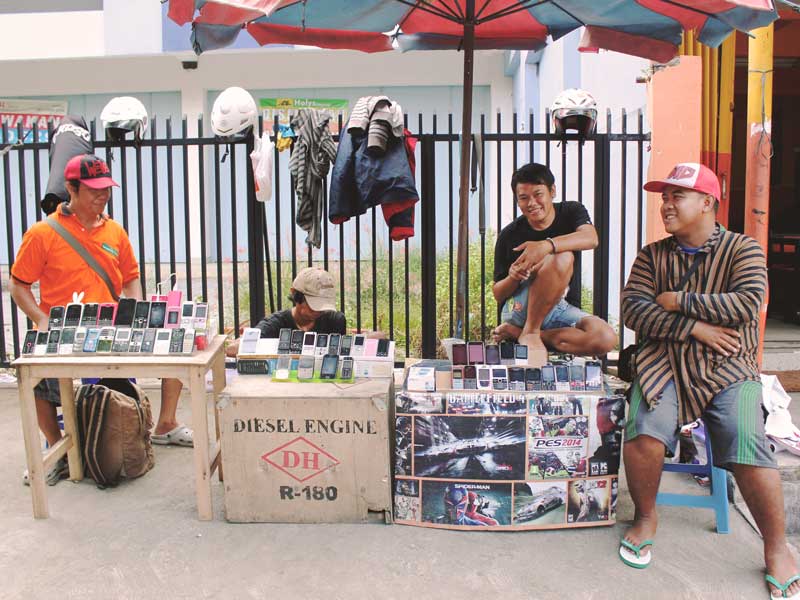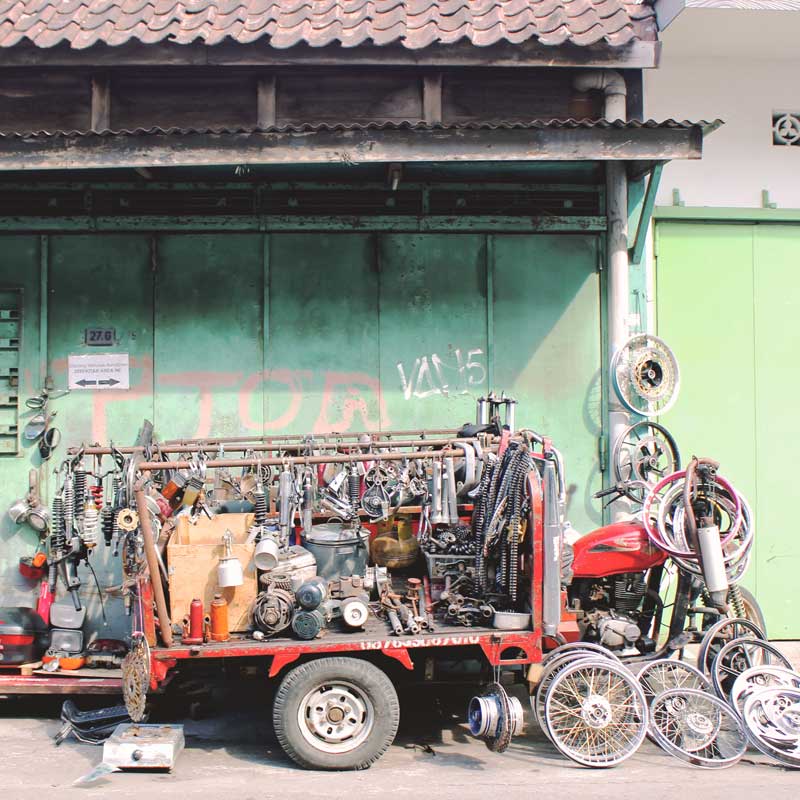Informal Vendor Research
Surakarta, Jogyakarta, Jakarta, Indonesia
Managing informal vendors is one of the most difficult challenges for mayors throughout Indonesia; yet, in recent years, there has been important progress in helping them transition to purpose-built market facilities and improve circulation in public spaces. While much attention has been given to these approaches that have favored engagement and participation, and avoided conflict, Kota Kita conducted research into what happened after vendors were cleared from the streets. We explored some of the factors behind their returning to the abandonment of markets and returning to the streets, asking why some policies were successful while others failed.




Kota Kita conducted research in three cities, Surakarta, Jogyakarta and Jakarta, and interviewed over 60 informal vendors who have been involved in highly recognized attempts to move street vendors into purpose built market facilities. In each case the transitions were initially considered successful – there were limited confrontations, public spaces and circulation was improved and new work and business environments occupied. But that is only half the story because after a few months vendors started to abandon these markets to return to the streets. Our findings can be summarized as the following three reasons:
The relocation efforts failed to look beyond aesthetic approaches that only delivered improvements in the visible quality of public spaces.
But there was less thought given to the physical functionality and locational factors of how these spaces would work; key concerns of vendors. In the absence of effective site plans and designs, including infrastructural elements integrating the market with its urban surroundings, vendors are more inclined to return to the streets.
The relocation processes failed to prepare vendors for the competitiveness of the “free” market that they would encounter within public markets.
The formalized free market environment, and the extension of property rights to street vendors, unwittingly hindered rather than advanced their economic empowerment. Many vendors were unprepared and incapable of competing in fixed purpose built facilities alongside vendors possessing more business experience, greater financial resources, or unfair locational advantages, as well as those skirting regulation. In such cases, economic empowerment requires more interventionist policies on behalf of vendors to protect them from unfair competition and help them adapt to, and find niches within the market.
Relocation planning and management failed to consider the emerging needs of vendors.
The research revealed that while governments focused on ensuring the relocation of street vendors through a process of negotiation, their role in supporting vendors ended there. There was no policy maintenance and enforcement following relocation, nor the provision of training and support around financial literacy, management skills, and other capacities are additionally needed for vendors to remain in the markets and thrive.
Kota Kita’s research into informal vendors helps to refocus the attention of policies that support vendors from short-term solutions, aimed at managing public space, towards considerations of economic empowerment of the urban poor and their rights to urban space, accessibility, and mobility.
